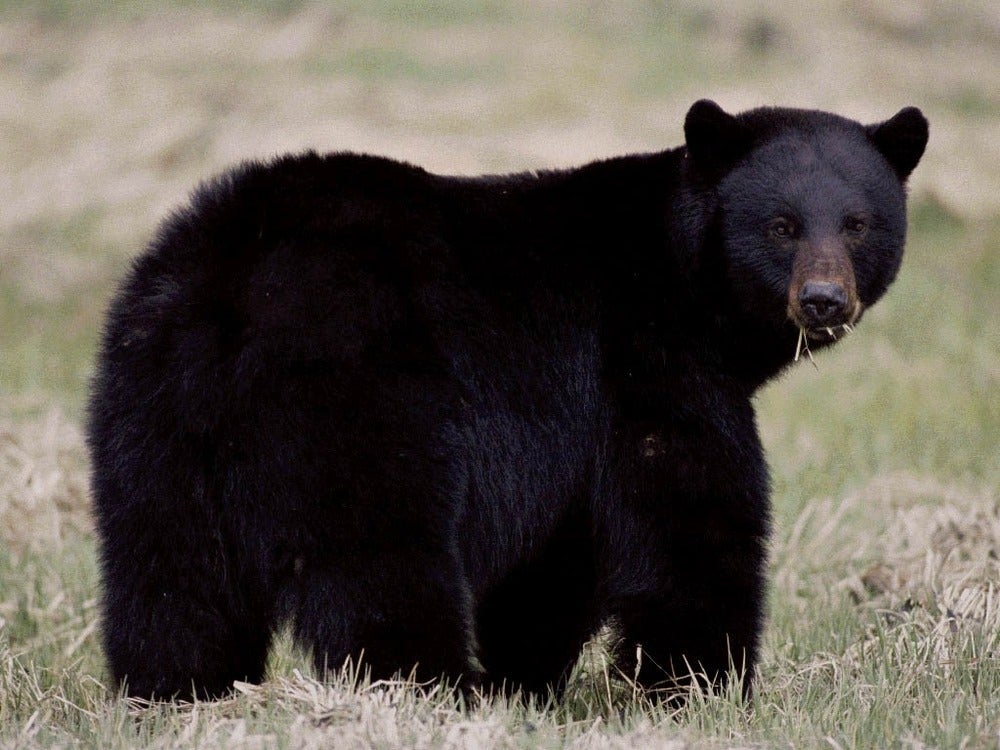Connecticut Considers Black Bear Hunt Due to Rising Bear-Human Conflicts

Bear-human conflicts in Connecticut set records in 2022. Now lawmakers are considering a bill that could lead to a bear hunt in the state.
A recent report from the Connecticut Department of Energy and Environment (CTDEEP) found that black bear sightings were reported last year in 158 of the state’s 169 towns and cities. Conflicts between bears and humans, in general, continued a long-term upward trend, with bear home invasions, in particular, setting a new record. Sixty-seven incidences of bears breaking into houses were reported in 22 different cities and towns—nearly double the rate in 2021.
The state’s black bears have become increasingly accustomed to people and are “much bolder and much more aggressive,” Jenny Dickson, director of CTDEEP’s Wildlife Division, told Connecticut Public Radio. There were two reports of bears attacking humans in 2022, including an attack on a 10-year-old boy that occurred in a Litchfield County backyard.
Lawmakers Mull Change
With an estimated 1,000 to 1,200 black bears, Connecticut is currently the only Northeastern state with a breeding bear population that prohibits hunting. A proposal before the state legislature would change that, allowing the CTDEEP commissioner to adopt an annual bear hunt lottery season in Litchfield County with a limit of 50 bears. State Bill No. 1148 would also grant nighttime depredation permits to landowners whose crops are damaged by black bears and would make it legal to kill any bear that enters a building. The bill also calls for limits on the intentional and unintentional feeding of wild animals.
The bill has attracted support from Gov. Ned Lamont and CTDEEP Commissioner Katie Dykes. “Our objective and our motivation is not to reduce the bear population, it’s to reduce conflicts between people and bears,” Dykes said at a public hearing on the proposal held on March 10 before the Connecticut General Assembly’s Environment Committee.
About 1,000 people testified or submitted written comments for the hearing. Approximately 70 percent of the written testimony was in favor of the bill, which also has the backing of hunting groups such as Friends of Connecticut Sportsmen.
Read Next: New Jersey Court Lifts Hold, Allows Bear Hunting Season to Commence
The CTDEEP has tracked public sightings of black bears since the animals began returning to the state in the 1980s, and the data helps gauge the population’s health and statewide distribution. Reports of sows with cubs show breeding populations are expanding. According to the CTDEEP, mother bears were reported in more than 90 Connecticut towns in each of the last two years, compared to fewer than 50 towns seven years ago. The first-year survival rate for cubs is 81 percent in the state, which is high for the species. This suggests Connecticut’s bear population has a high potential for growth.
The post Connecticut Considers Black Bear Hunt Due to Rising Bear-Human Conflicts appeared first on Field & Stream.
Articles may contain affiliate links which enable us to share in the revenue of any purchases made.
